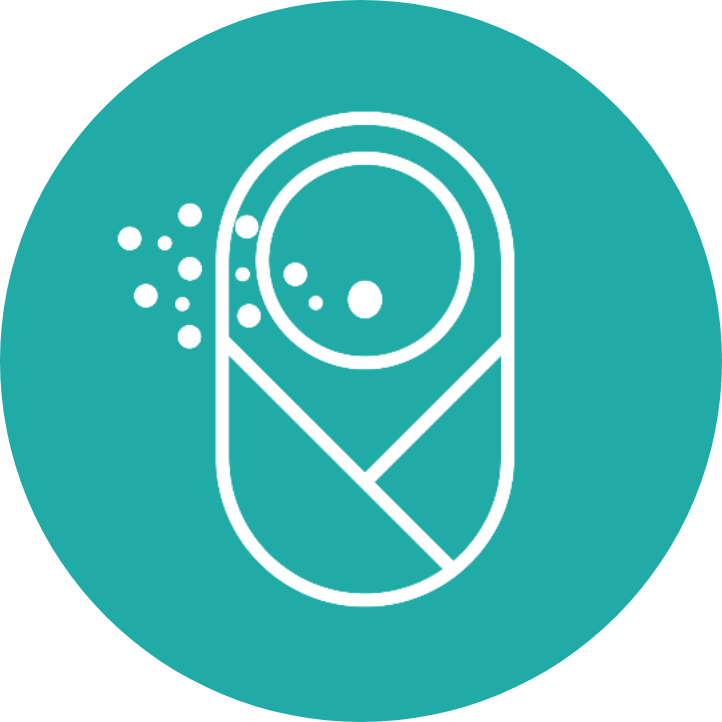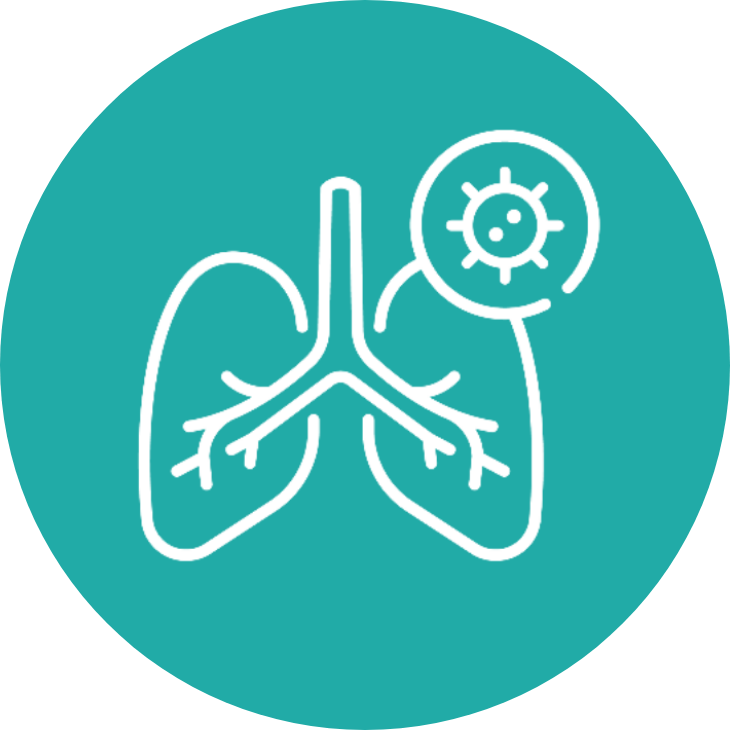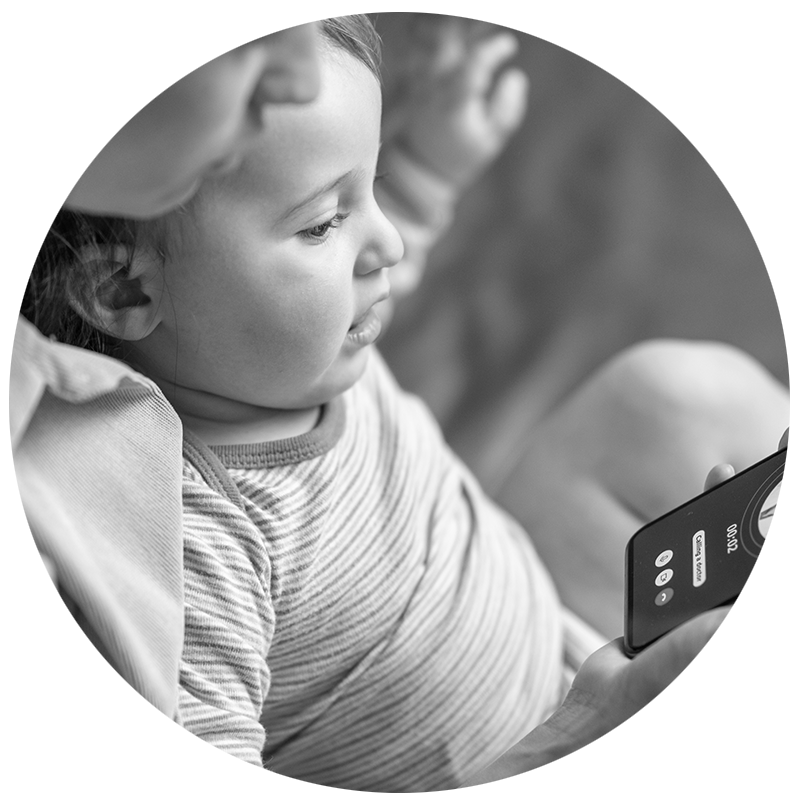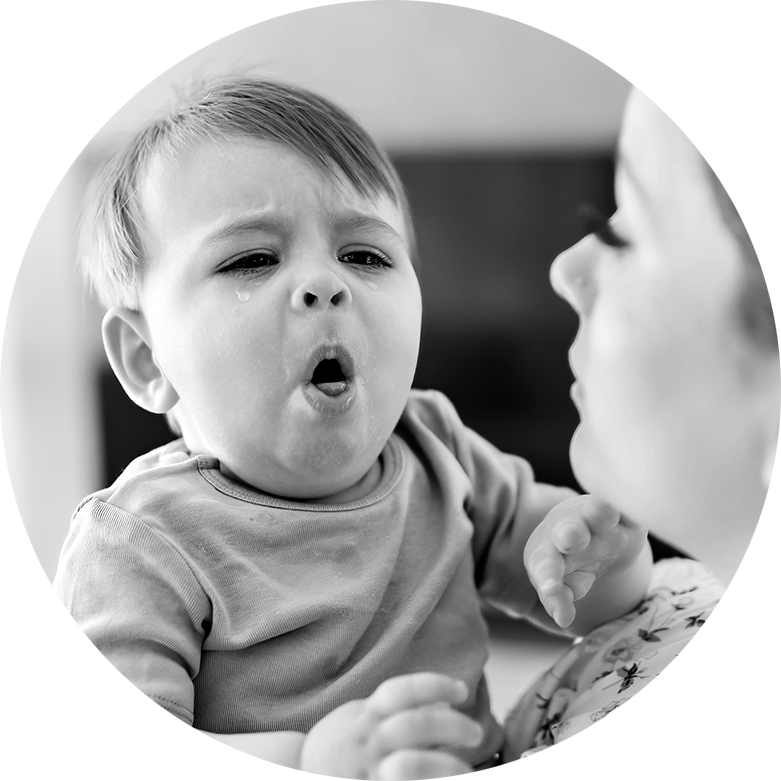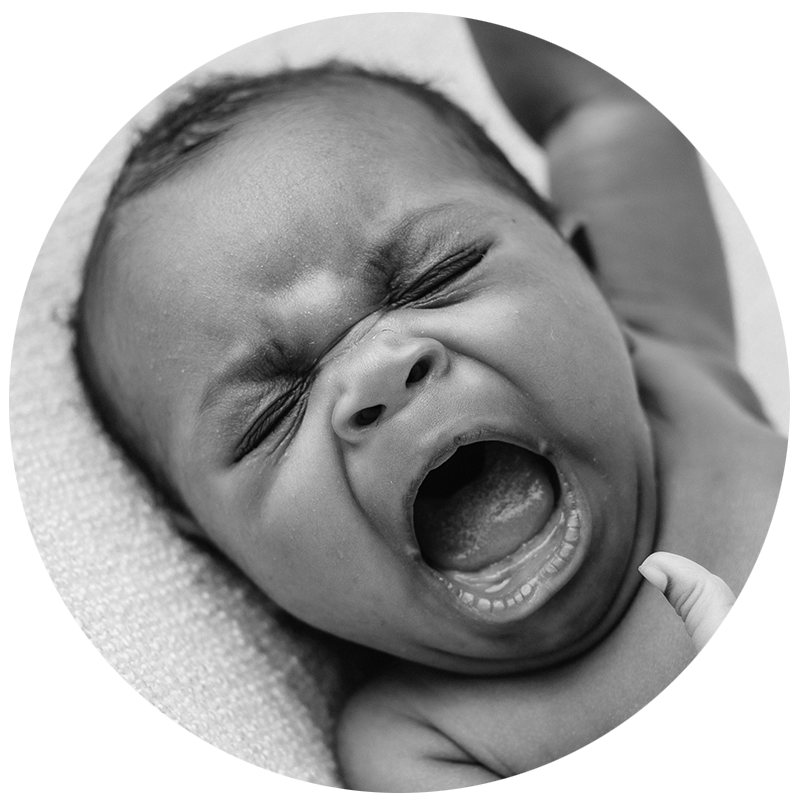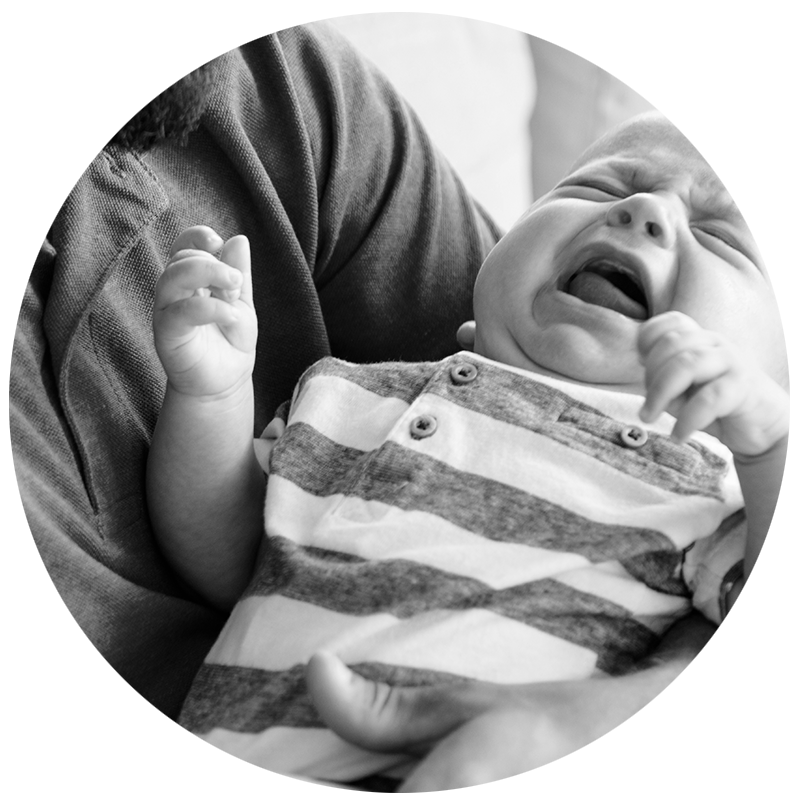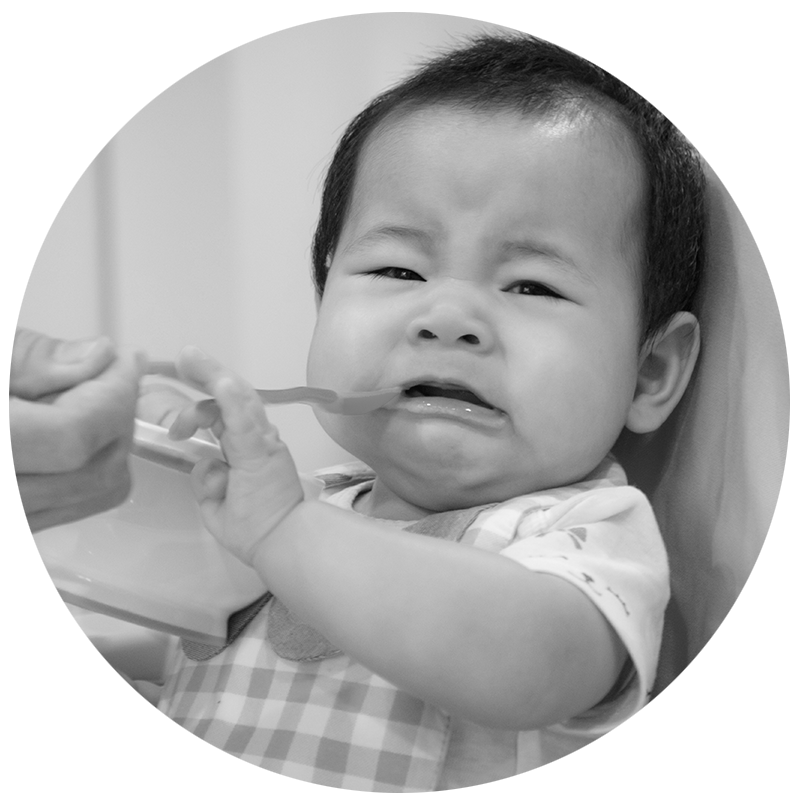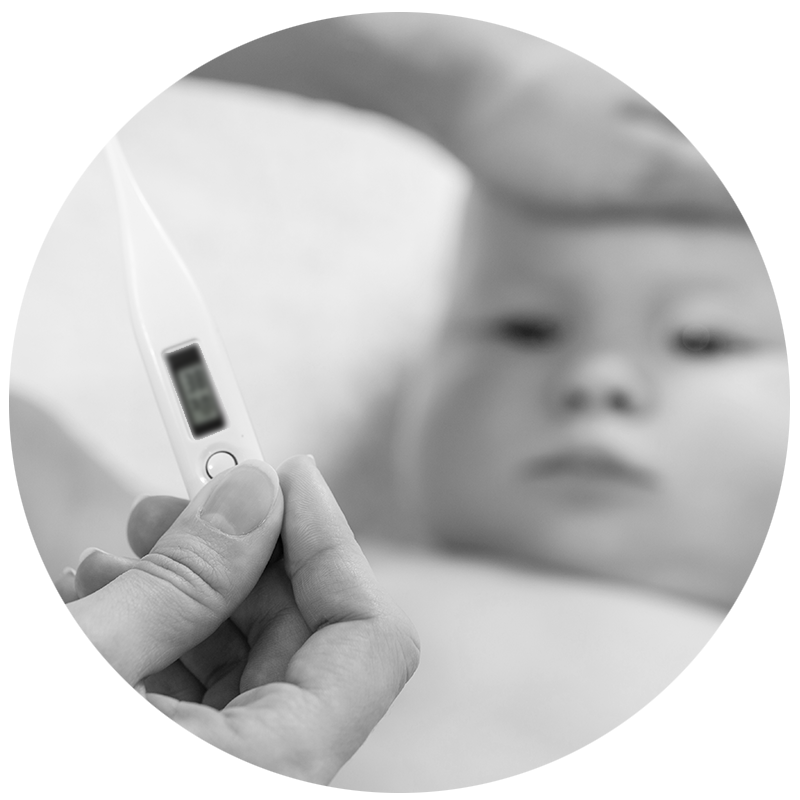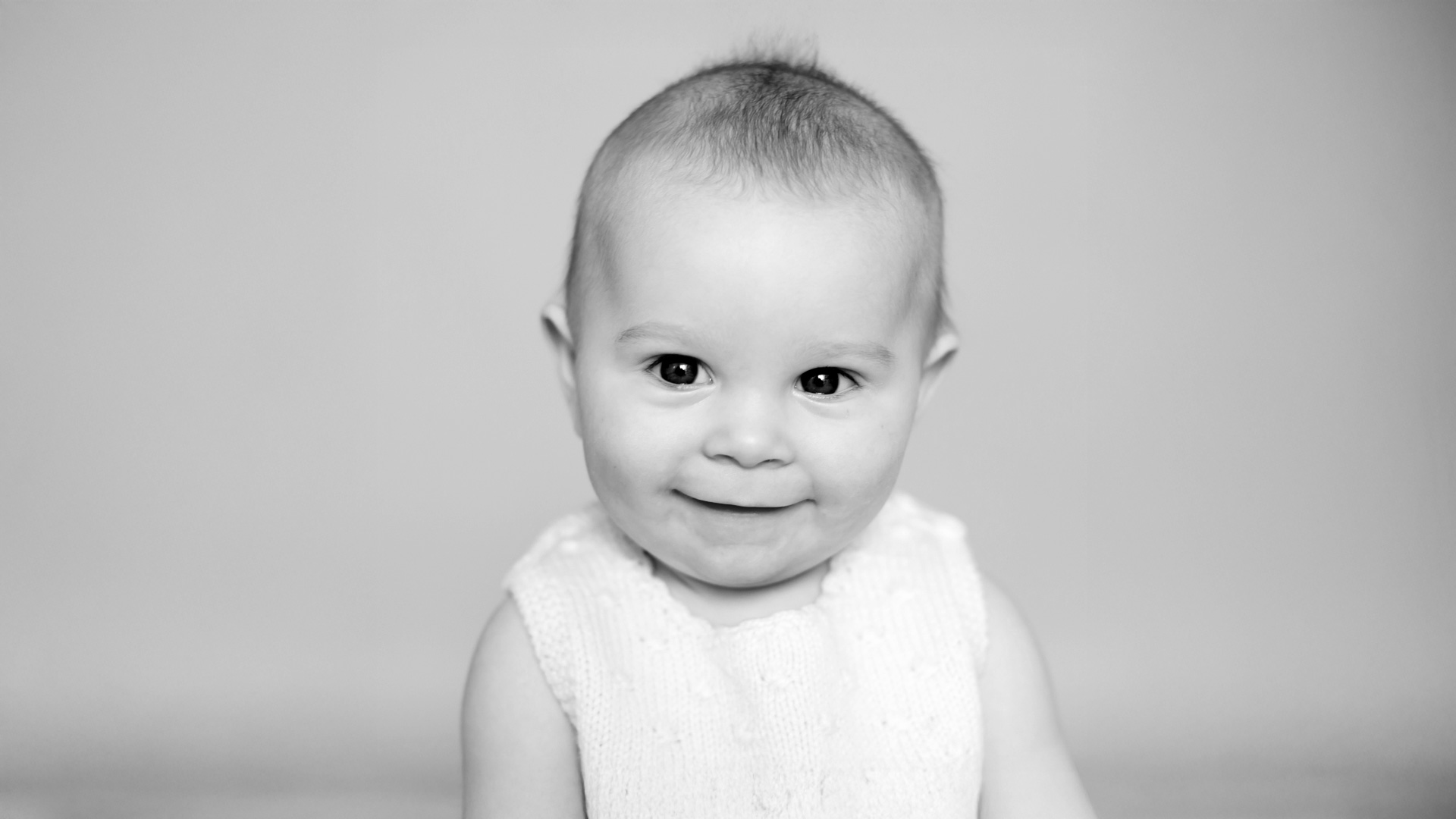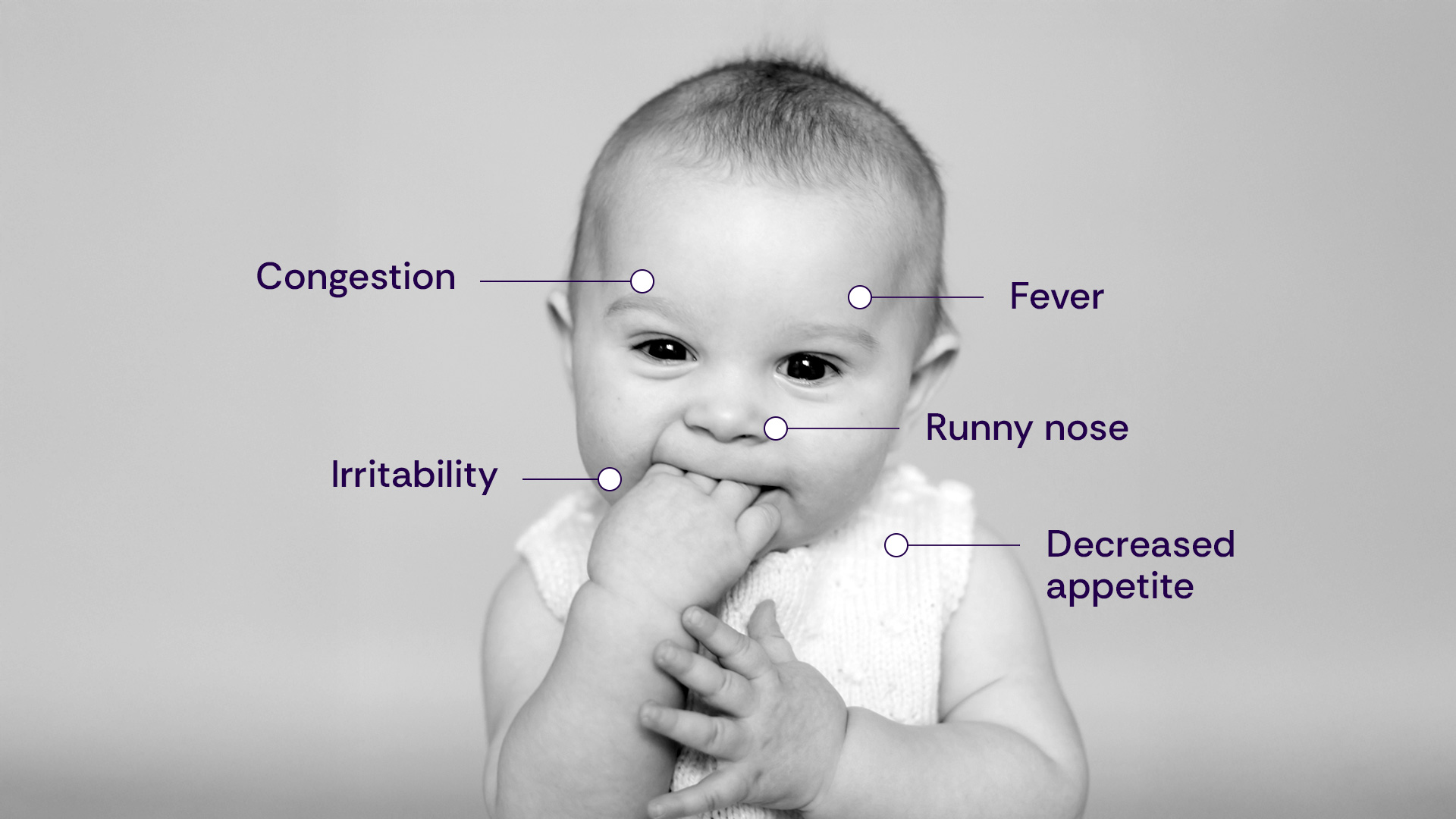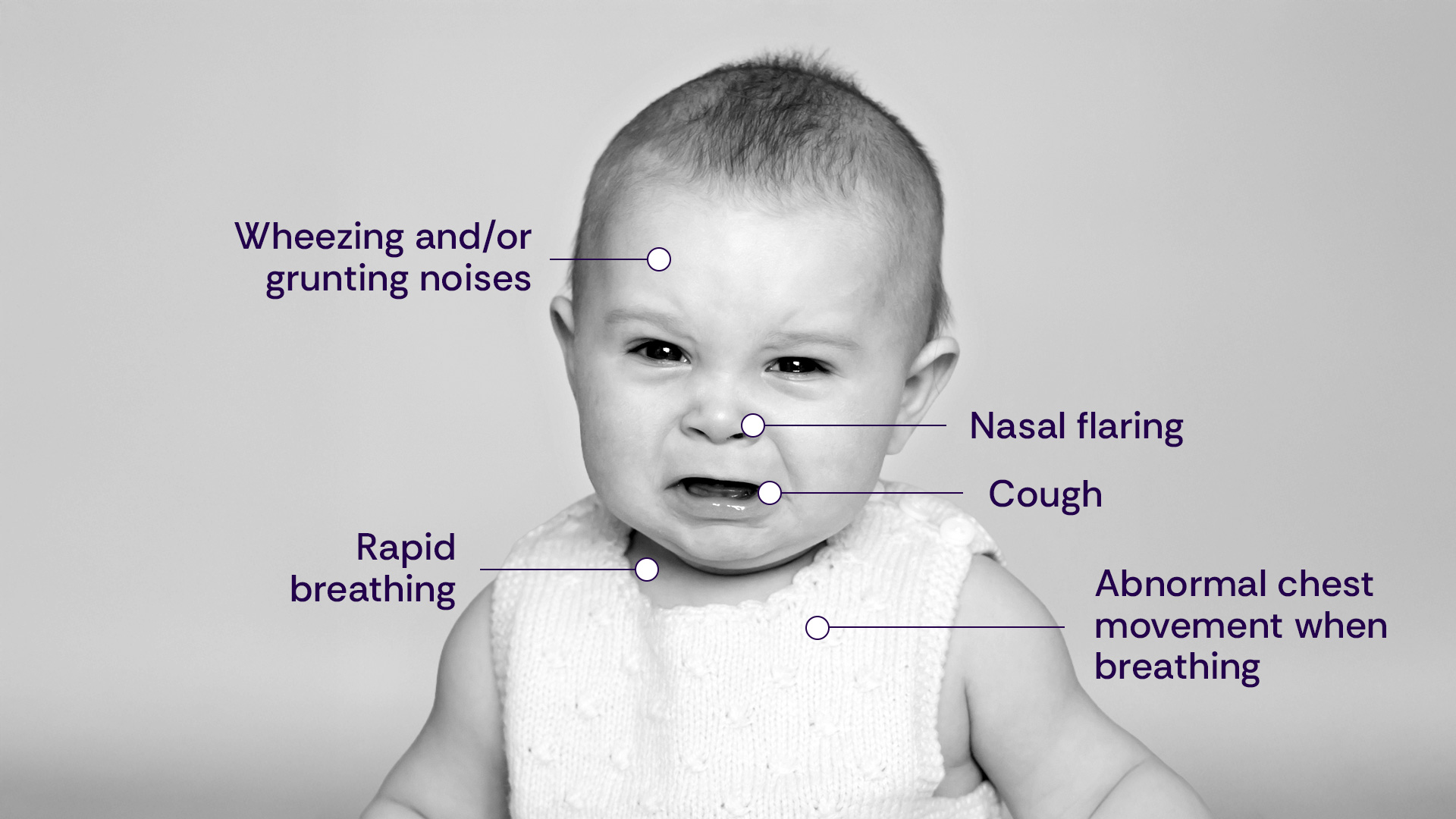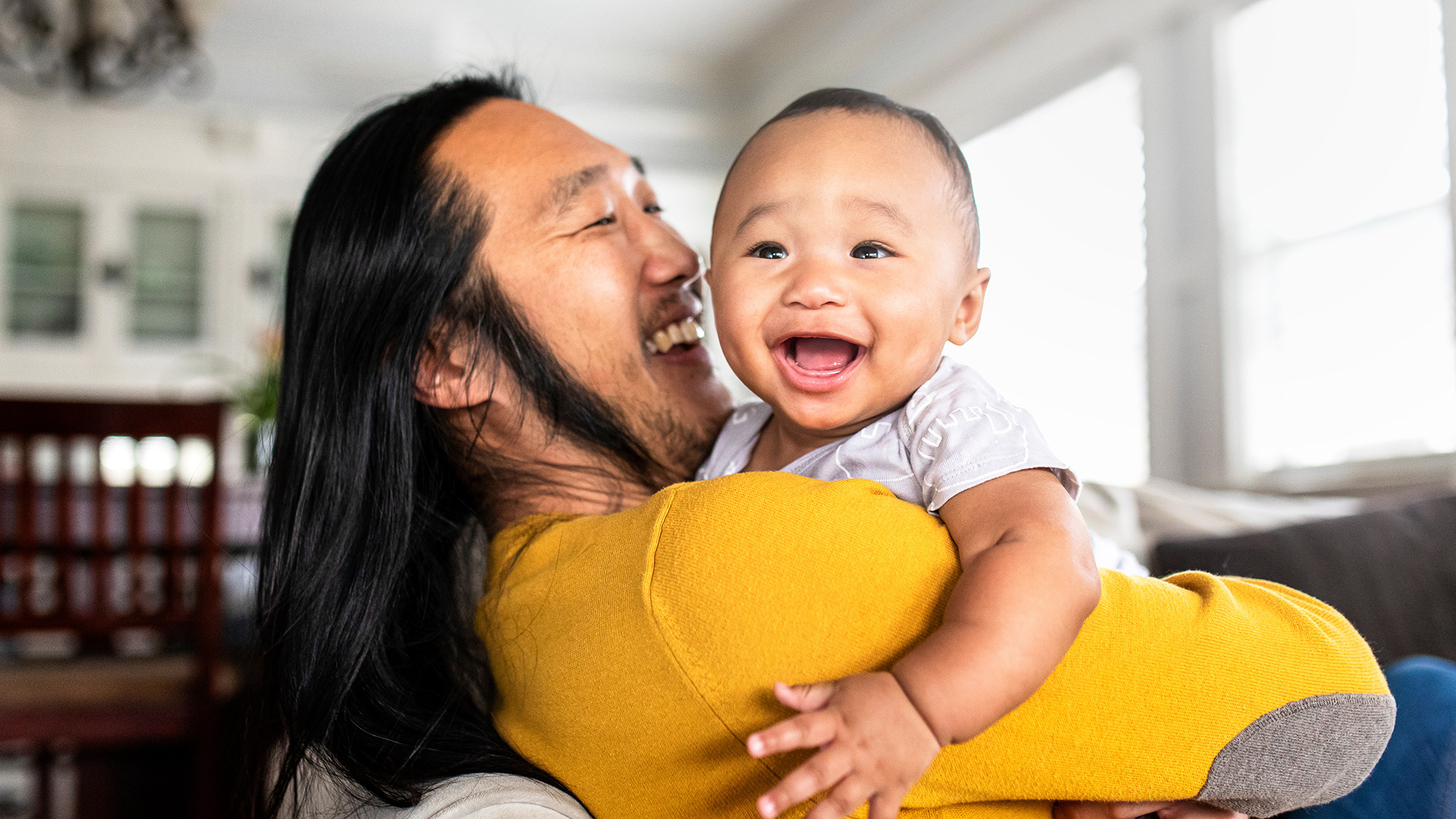Learn about RSV before your baby does
Respiratory syncytial virus (RSV) is the leading cause of hospitalization in infants under 12 months
What is RSV?
RSV is a highly contagious virus that can lead to respiratory illness in babies, including lung infections such as bronchiolitis and pneumonia.
RSV infections can go from mild symptoms to hospitalization in less than a week.
Mild symptoms may include a runny nose, sneezing, and coughing, while severe symptoms can include wheezing and difficulty breathing.
That means the best time to learn about RSV is before your baby does.
Talk to your healthcare professional about RSV prevention options that may be available for your baby
Bronchiolitis (bron-key-oh-lie-tis) is a viral infection in the smallest airways in the lungs (bronchioles). When the bronchioles swell and become inflamed, mucus may build up, leading to congestion and difficulty breathing. Most cases of bronchiolitis are caused by RSV.
Pneumonia (noo-mohn-yuh) is a lung infection that can cause mild to severe coughing, fever, and trouble breathing.
If an infant or young child has bronchiolitis or pneumonia, RSV is a likely cause
RSV Stories
Get inspired by the stories from other families who were impacted by RSV.
Kate’s Story
When one of Kate’s twins got sick with RSV, she soon discovered that all children are at risk of RSV – not just those born prematurely or with underlying conditions.
“I knew about RSV, but I never thought my kids would get it. I figured only newborns, smaller infants, or those with certain underlying conditions were at risk.”
Rebecca’s Story
Despite Rebecca’s best efforts to shield her prematurely born daughter from RSV, a hospital stay for RSV was all but inevitable.
“RSV was like the boogeyman that we wanted to avoid at all costs. We were extremely careful to avoid crowded indoor areas, limited visitors, and washed our hands all the time. Despite all our efforts, however, she got sick.”
RSV Fast Facts
RSV Signs & Symptoms
RSV can often mimic a cold or the flu.
But as the infection becomes more severe, so do the symptoms.
Keep a close eye on your baby if you notice any of the following:
- Coughing
- Sneezing
- Runny nose
- Fever
- Wheezing
- Congestion
- Decreased appetite
In babies under 6 months, the only RSV symptoms they may show are irritability, decreased activity, decreased appetite, difficulty breathing, and reduced fluid intake.
When to contact a doctor
If you notice any of the following in your baby, contact their doctor right away:
Short, shallow, and abnormally fast breathing:
Look for chest wall retractions. Think of chest wall retractions as a “caving-in” of the chest in between and under the ribs.
Your baby has a wheezing cough.
Nasal flaring:
When your baby’s nostrils spread out with every breath.
Your baby is unusually tired or has a blue tint to their lips or fingernails.
Your baby has poor feeding.
Your baby has a fever:
- 38°C (100.4°F) or higher for a baby younger than 3 months
- 39°C (102.2°F) or higher for a baby older than 3 months
Help protect your baby
RSV is easily spread through coughs, sneezes, and close physical contact, like cuddles and kisses.
Talk with your family and friends about practicing the following healthy habits to help protect your baby from RSV:
Wash your hands often.
Clean and disinfect surfaces, including your baby's toys.
Avoid close contact with anyone who has cold or flu-like symptoms.
If you have cold or flu-like symptoms, avoid kissing or touching your baby.
Cover your face when coughing or sneezing.
Avoid sharing utensils if you have cold or flu-like symptoms.
Talk to your healthcare professional about RSV prevention options that may be available for your baby
Symptom tracker
What may be happening on days 1-2:
- Baby inhales droplets containing RSV
Symptoms can include:
- No symptoms
What may be happening on days 3-5:
- Baby begins to feel ill and experience symptoms
Symptoms can include:
- Congestion
- Runny nose
- Fever
- Irritability
- Decreased appetite
What may be happening on days 6-8:
- RSV spreads to lower respiratory tract
Symptoms can include:
- Cough
- Rapid breathing
- Wheezing and/or grunting noises
- Nasal flaring
- Abnormal chest movement when breathing
If you notice any of the following in your baby, contact their doctor right away
- Short, shallow, and abnormally fast breathing: Look for chest wall retractions. Think of chest wall retractions as a “caving-in” of the chest in between and under the ribs.
- Your baby has a wheezing cough.
- Nasal flaring: When your baby’s nostrils spread out with every breath.
- Your baby is unusually tired or has a blue tint to their lips or fingernails.
- Your baby has a poor appetite.
- Your baby has a fever: 38°C / 100.4°F or higher for a baby younger than 3 months.
- 39°C / 102.2°F or higher for a baby older than 3 months.
FAQs
The best time to learn about RSV is before your baby does. As a parent, you probably have a lot of questions. We have the answers.
RSV stands for “respiratory syncytial virus.” It is a virus that occurs seasonally (usually from the winter months through to spring) and is easily spread. It usually causes mild illness but may also lead to conditions such as bronchiolitis and pneumonia, which can be severe in infants – especially those under the age of 1 year.
RSV is very common among infants – nearly all will have been infected with RSV by the age of 2.
Any infant can catch RSV. While most RSV cases are mild, it is not possible to predict which healthy infants could get seriously ill and end up in hospital.
Studies have shown that most infants admitted to hospital with RSV have no other health problems. This makes it hard to predict exactly which infants will become severely ill.
Mild symptoms may include a runny nose, sneezing, and coughing, while severe symptoms can include wheezing and difficulty breathing.
There are limited options to address RSV disease once patients have been infected. Treatment of severe RSV infections generally relies on supportive care, including oxygen and fluids.
Because the RSV infection can look like a cold, with symptoms like a runny nose, sneezing, and coughing, testing often isn’t required for a diagnosis. However, if your doctor suspects RSV based on medical history, the time of year, or a physical exam, a lab test may be run to confirm the diagnosis. This can commonly include a mouth swab or blood test.
Currently authorized prevention options for your baby include monoclonal antibodies (BEYFORTUS®, SYNAGIS®).
BEYFORTUS is used for the prevention of RSV lower respiratory tract disease in neonates and infants during their first RSV season, and in children up to 24 months of age who remain vulnerable to severe disease through their second RSV season.
SYNAGIS is used for the prevention of serious lower respiratory tract disease caused by RSV in pediatric patients at high risk of RSV disease.
ABRYSVOTM is a vaccine authorized for pregnant individuals from 32 through 36 weeks gestational age for the prevention of lower respiratory tract disease (LRTD) and severe LRTD caused by RSV in infants from birth through 6 months of age.
Additionally, getting recommended immunizations (e.g., measles vaccine) may protect you and your child from some of the complications of respiratory infections.
Talk to your healthcare professional about RSV prevention options that may be available for your baby.
NOTE: 100% protection cannot be guaranteed by the use of immunizations.


